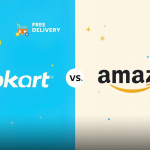E-commerce has entered a new era defined by speed, personalization, and technological sophistication. What began as a convenient alternative to physical shopping has become a global ecosystem of data-driven experiences and intelligent automation. Consumers today expect more than just online access they seek relevance, immediacy, and transparency. To meet these demands, brands are adopting innovative technologies that are redefining how people discover, purchase, and interact with products. Game-Changing The evolution of e-commerce is no longer about being digital; it’s about being smarter, faster, and more human.
Innovation 1: AI-Powered Personalization The New Storefront Experience
Artificial intelligence has become the backbone of modern e-commerce strategies. AI-powered personalization enables retailers to understand user preferences in real time and deliver curated product recommendations that feel almost intuitive. Instead of static catalogs, shoppers now experience dynamic storefronts tailored to their browsing habits, purchase history, and behavior patterns.
Key applications include:
- Predictive recommendations that suggest products before the shopper searches.
- Behavioral targeting that adjusts offers based on engagement levels.
- Automated chatbots that enhance customer service with personalized conversations.
By blending data analytics with emotional intelligence, AI ensures that every digital interaction feels relevant, increasing both engagement and conversion rates.
Innovation 2: AR and VR Trying Before Buying Goes Digital
Augmented reality (AR) and virtual reality (VR) are transforming the way consumers evaluate products online. These technologies bridge the sensory gap of digital shopping by offering interactive, immersive experiences. From virtually trying on clothes to visualizing furniture in a living room, AR and VR eliminate uncertainty and boost purchasing confidence.
Retailers leveraging these tools report significant reductions in return rates and higher customer satisfaction. Fashion brands, cosmetic companies, and home décor retailers are particularly leading this movement, giving customers a near-physical experience through their screens. As AR and VR technology becomes more accessible, these features will soon be standard in e-commerce platforms worldwide.
Innovation 3: Voice Commerce Are Smart Speakers the Next Checkout?
The rise of voice-activated technology has added a new dimension to e-commerce convenience. With the growing adoption of smart speakers and voice assistants, consumers are now shopping using simple verbal commands. Game-Changing This hands-free experience appeals to multitaskers and accessibility-focused users alike.
Voice commerce is thriving because it:
- Reduces friction in the buying process.
- Enhances accessibility for users with disabilities.
- Integrates seamlessly with home ecosystems.
Retailers are optimizing product descriptions, search keywords, and checkout processes for voice queries. As natural language processing (NLP) continues to evolve, voice commerce could soon become one of the most efficient and intuitive forms of online shopping.
Innovation 4: Sustainable Shopping How Green Tech Is Reshaping Retail
Environmental awareness is influencing purchasing decisions more than ever before. E-commerce companies are adopting sustainable technologies to reduce their ecological footprint and appeal to conscious consumers. Game-Changing. From biodegradable packaging to carbon-neutral delivery, the green revolution in online retail is in full swing.
Emerging sustainable practices include:
- AI-driven inventory optimization to minimize waste.
- Eco-friendly packaging materials that reduce plastic use.
- Blockchain-enabled transparency to verify ethical sourcing.
Consumers increasingly choose brands aligned with their values. For e-commerce players, embracing sustainability is no longer optional it’s a business imperative that strengthens brand trust and long-term loyalty.
Innovation 5: Faster Fulfillment with Robotics and Automation
Speed is the new currency in e-commerce. Customers expect deliveries not just in days, but often within hours. To meet this demand, companies are investing heavily in robotics, automation, and smart logistics. Automated warehouses powered by AI and robotics streamline operations from inventory management to last-mile delivery.
Some of the most impactful changes include:
- Autonomous delivery drones and vehicles for rapid dispatch.
- Robotic picking systems that improve warehouse efficiency.
- Predictive logistics that anticipate order spikes and optimize routes.
Automation ensures consistency, accuracy, and scalability three pillars essential to maintaining customer satisfaction in a high-volume, high-speed marketplace.
Innovation 6–10: The Trends Redefining E-Commerce in 2025
Beyond these major shifts, several emerging innovations are set to further reshape e-commerce in the coming year:
- 6. Social Commerce Expansion: Platforms like Instagram, TikTok, and Pinterest are integrating direct shopping features, turning social interactions into purchase moments.
- 7. Blockchain for Secure Payments: Blockchain enhances transaction transparency, minimizes fraud, and builds customer confidence in cross-border sales.
- 8. Hyperlocal Delivery Models: Businesses are setting up micro-fulfillment centers to meet same-day delivery expectations in urban areas.
- 9. Subscription Economy Growth: From meal kits to beauty boxes, subscription models drive recurring revenue and customer loyalty.
- 10. AI-Powered Visual Search: Consumers can now upload an image to find similar products instantly, transforming product discovery into a visual experience.
Each of these advancements demonstrates the convergence of technology, data, and user experience that defines the next phase of e-commerce.
Conclusion
E-commerce is evolving faster than ever, driven by innovation across every stage of the buyer journey. From AI-driven personalization to robotics and sustainability, the industry is no longer defined solely by convenience but by intelligence and adaptability. Retailers that invest in these technologies are not just keeping pace with trends they’re shaping the future of global commerce.
However, success in this rapidly shifting landscape also depends on human expertise. Businesses must continuously adapt, analyse, and innovate, often requiring specialised talent to implement emerging technologies effectively Game-Changing . Wiraa, a global remote job platform, connects companies with skilled professionals who excel in areas like AI development, automation, data analysis, and digital marketing. By bridging global talent with modern business needs, Wiraa enables e-commerce brands to stay agile, competitive, and future-ready.
In essence, the future of e-commerce will belong to retailers that combine innovation with adaptability and with platforms like Wiraa, accessing world-class expertise to drive that transformation has never been easier.




